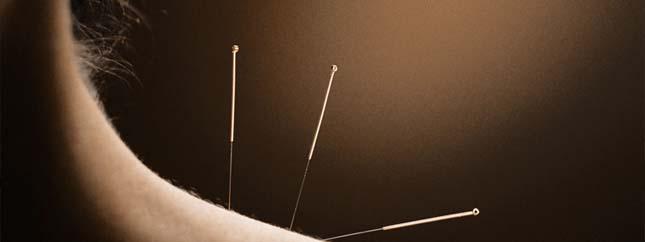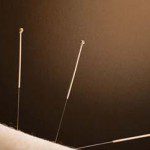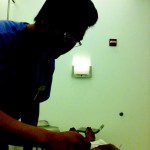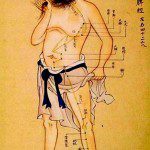“You might bend down to pick up a pen and hurt your back, but that’s not why you hurt your back,” says Sung Up Hong. “There is a history and a reason behind that problem with deeper roots than what you see and feel on the outside.”
That is the goal of acupuncture, says Hong, a third-generation licensed acupuncturist, who practices at Hela Spa in Chevy Chase: to find the root cause of the problem and treat the patient holistically.
At the spa, trying to nap with a few dozen needles stuck into various regions your body may not seem like the most effective means of fortifying your health and spirits. But as anyone who has received acupuncture will tell you, there are few more refreshing steps toward repose and well-being.
Acupuncture, a 2,000-year-old oriental medical practice, has its origins in China and Korea and has long been acknowledged as a versatile and beneficial alternative medicine technique to supplement treatment of a wide range of illnesses, pain and bodily stress. When incorporated with traditional herbal remedies, each with their own unique actions and health benefits, acupuncture is well worth exploring as a therapeutic health treatment.
A great deal of over-the-counter medicine available today is designed as a quick-fix treatment. Headaches, digestive problems, respiratory issues and congestion, as well as a wide range of recurring bodily problems are too often treated with temporary solutions. Advil, for instance, numbs the problem when you have a headache, but it does not get rid of the habit of headaches or a chronic headache.
Acupuncture is effectively performed to increase flow and release pressure along the body’s network of blood circulation, its Acupuncture Meridian, according to standards of oriental medicine. There are 12 major meridian lines that run vertically on both sides of your body. “Acupuncture along the meridian lines helps our body’s energy to circulate,” Hong says.
Pain—be it cramps in your shoulders, waist, headaches and so on—is a result of bad circulation, he says. “Something is blocking the flow of energy and blood circulation, which we unblock with acupuncture and herbal supplements.”
Acupuncture is diverse and multifaceted. It can help treat arthritis, allergies, congestion, insomnia, headaches, menstruation problems, digestion problems, pain-related systems (shoulders, back, knees, etc.) and more, with overall focus on strengthening the immune system and internal energy.
This internal energy and blood circulation, called Chi, is what Hong refers to as life force energy. “It is what makes us move,” he says with a poetic lilt. “It circulates our blood, makes our organs function properly. It keeps our bodies balanced and strengthens our immune system.”
Hong has a certain intuitive way of speaking about acupuncture and a harmonious body in the manner a 17th-century sailor talked about the stars and the sea. His entire life has intimately involved Hong with oriental medicines — his family has practiced acupuncture for over 100 years — and beyond his professional training, the practice and application of it is noticeably engrained within him. “I was raised with oriental medicine,” he says, “and I learned how effective it is from a personal standpoint.”
His understanding of health and well-being is very much of his own time and place. Far from being dated, Hong encourages acupuncture medical research in the here-and-now. His goal is to conduct research and studies to prove scientific benefits of acupuncture and blood flow. He holds a master’s degree of science from Samra University of Oriental Medicine in Los Angeles and has learned to appreciate both traditional and integrative medicine to enhance treatment effects in patients. He has treated sports injuries and worked on spine rehabilitation as well as pain control and infertility issues.
As for the Washington area, “All my patients are stress-related,” Hong says.
“Everyone comes here for being stressed out,” he says. That’s no surprise, given the competitive nature of politics and the cut-throat pace of this mile-a-minute city.
Of course, there are always skeptics when it comes to alternative medicine. Most people I have spoken with have admitted skepticism toward the efficacy of acupuncture.
It is necessary to point out that one should only go to a well-trained practitioner with proper accreditation to receive acupuncture, but I highly suggest going in for a consultation. After measuring my pulse and examining the color of my tongue, Hong was able to ascertain accurate and specific idiosyncrasies of my own health that no doctor had ever diagnosed. Like someone reading secrets buried deep in my mind, he could tell the general scope of my diet and pinpoint factors of my own bodily stress, which he then treated with acupuncture, explaining to me where he had decided to place the needles via a model of the Acupuncture Meridian.
And while I haven’t been floating on daffodils or singing to bluebirds on my shoulder, I really have felt remarkably refreshed in the week following my acupuncture appointment.
But, as Hong explains, the result of acupuncture is not to walk out after your first appointment cured of all ailments and maladies. The nature of acupuncture is similar to that of exercise or a healthy diet: Your body benefits over time with recurrence and conditioning, supplemented with a healthy lifestyle.
In conjunction with acupuncture, there are also plenty of little changes you can make in your day-to-day life to improve your well-being, Hong says. Sometimes we don’t even know that what we are doing is bad for us until we make a change.
Consider Hong’s tips for a better tomorrow:
WELLNESS TIPS
Posture
Everyone is looking down, slouched at computers. Even using iPhones, we look down. As we look down, the weight of our head goes to the muscles of our necks and they tighten up. People also cross their legs a lot, which twists the pelvis and throws the back off balance, which is often the beginning of back issues. So always do your best to correct your posture: Open up your shoulders and try your best to sit up straight, and look straight at your computer screen.
Move Around
Make sure to get up every 30 minutes at least and really move. Take a stretch, walk around the office, maybe down the block. Make sure to get your blood circulating and breath deep.
Drink
Drink less soda, more water. Water filters your liver, reducing the risk of cramps and refreshing your system.
Eat
Eat more slowly, chew longer and control the amount of your eating. We sometimes eat so quickly that we have eaten too much before our brain realizes we are full. So, chew 20 or 30 times before swallowing. It also helps with digestion and the processing of foods, as it is more thoroughly broken down once it enters our digestive system.





